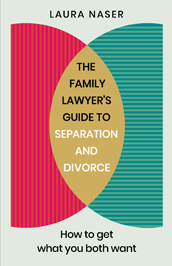What Can You Do If A Parent Does Not Want To See Their Children?

- This blog contains affiliate links, which we may receive a commission for purchases. The decision is yours, whether or not you decide to buy.
Minimising the impact that a separation has on any children involved, is often the primary concern for parents whilst divorcing. In many cases, arguing over which parent has the most contact with their children is commonplace, as both will want to remain a huge part of their children’s lives.
However, in much rarer cases, one parent may decide to set up a new life for themselves following a separation, or decide that their children are better off without them.
Whatever the reason may be, some parents may not want to see their children, or have responsibility for looking after them, following a separation.
The impact that this has on the children involved will differ from case to case. However, there is evidence to suggest that a lack of consistency and routine with parent contact or a lack of contact with a parent altogether, can cause considerable damage to the relationship between a parent and their child.
In these cases, there are several options that the other parent can try, in order to ensure that their children see both of their parents, including mediation and contact via a solicitor.
Mediation can be used as a way for parents to try to reach an agreement or at least try and reach an understanding of the other’s difficulties. This involves parents talking about their difficulties with a trained mediator.
When instructing a solicitor, the solicitor would write to the other parent, which may open up some useful dialogue to help both parents realise the impact that the relationship breakdown is having on the children and to outline ways that they can work together to create a relationship between both parents and their children.
The worst-case scenario is that neither mediation or contact via a solicitor makes any difference. However, by having tried one or both of these options, the important thing is that there will be a chain of evidence to support that one or both parents have taken steps to try to resolve any issues or difficulties they have, around contact with both parents and their children.
At this point, if there has been no resolution to the problem, a parent can issue Court proceedings. However, ultimately, if one parent does not wish to see their children, it is unlikely a court will be able to force them to do so.
David Berridge is a family law solicitor who specialises in all aspects of family law. A Partner, David works for regional law firm Bray & Bray Solicitors www.braybray.co.uk which has four offices across Leicestershire.
You may also like
Books
Buy now from Amazon
- Divorce & Money: Make the Best Financial Decisions During Divorce
- The Family Lawyer’s Guide to Separation and Divorce: How to Get What You Both Want
- Parenting Apart
Podcast
Kate Daly is co-founder of amicable and host of the The Divorce Podcast. Kate created The Divorce Podcast to discuss and demystify divorce, separation and co-parenting in the UK. In each episode, Kate is joined by experts in their field to explore divorce and separation from every angle.
Articles
- Finances On Divorce – What Is A Mesher Order?
- How Are Finances Divided On Divorce?
- 10 Divorce Survival Strategies For Women
Videos
Practical advice and tips from professionals on what to do with issues and challenges around divorce from parenting to finance.
Events
Practical tips & advice designed to help people going through divorce, whether online or in person.
Useful links
Here's a selection of organistaioins from parenting to finance to help you with your divorce.
Parenting professionals
Related Posts
-

Divorce And Friendships: Navigating Shared Social Circles
-

Managing Divorce Post-Christmas: Unveiling The January Surge In Separations
-

Thriving Through The Holidays: A Guide To Resilience And Self-Discovery After Christmas, Separation, And Divorce
-

5 Rights Of A Child After Divorce
-

Six Ways A Divorce Coach Can Transform Your Divorce Journey



.jpg)



.jpg)

